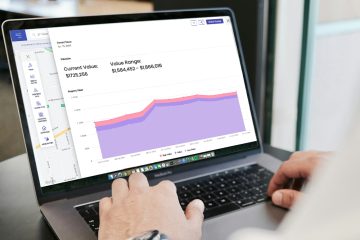There are various terms used to define rental property income – operating income, gross revenue, cash flow, and taxable income – to mention a few. But what are these terms and what do they mean for a rental real estate investment? We will define these terms and try to explain how they can influence your investment.
Gross Revenue
Gross Revenue is the total rental income that can be collected by renting the property for the full 12 months of the year. If the monthly rent is $1,000 then the gross revenue would be $12,000.
Other terms often used to refer to this number include – Gross Potential Income and Gross Potential Revenue.
But in reality a tenant might vacate the property during the year and you might not be able to collect the full $12,000 in rent. As you can see gross revenue only serves a good conversation in a tea party, but it does not represent your realized revenue.
Operating Income
As you would expect you may not be able to rent the property for the whole 12 months of the year and you might run into some vacancies. This results in a reduction in your annual income and this actual realized income is called the operating income. This is the number that really matters for your real estate business.
Most folks may present the gross revenue as the revenue potential as the income when trying to sell a property. It is important for you to look at the past tax filings for the property to understand the operating income generated from the property.
Net Operating Income
This is the difference between the Operating Income and the Operating Expenses for the property. Operating expenses may include property taxes, insurance, HOA fees, property management fees, repairs and maintenance costs, etc., but does not include any mortgage payments or tax deductions. If you do not have a mortgage on the property, the net operating income (NOI) would be the same as your cash flow – cash in hand.
Cash Flow
Cash flow is the actual cash that you get to see in hand at the end of every month after you pay all your expenses including operating expenses (explained under Net Operating Income above) and mortgage payments. While the NOI is a good theoretical measure of the property’s income potential, cash flow may represent the actual income for you if you are planning to take a mortgage to purchase the investment property.
Taxable Income
The good thing about owning a rental property is the tax deductions you get to take at the time of filing your annual tax returns. Please do not consider this as anything close to tax advice and you should certainly rely on your CPA or accountant to provide you that.
But here are 2 components of the tax deductions that help you take income from your rental property but reduce your tax liability, in many cases to almost zero. Note that all your operating expenses are not taxable. The following are tax deductions from your net operating income to arrive at your final taxable income.
Mortgage Interest: If you have one or more mortgages on the property then all mortgage interest expenses are not taxable and so you can deduct your mortgage interest from the NOI.
Depreciation: We all know that the value of a property appreciates over a period of time. Then you may ask, why are we taking a depreciation on the property as a tax deduction. Well, for accounting purposes IRS distinguishes your land value from your building value. The land value is expected to appreciate but a physical asset such as a building may deteriorate over time and is expected to have a lifetime – just like your TV has a lifetime of 7 years and your computer might have a lifetime of 5 years and so on. For building the IRS has set a lifetime of 27.5 years. So, each year you can assume that you are losing 27.5th part of your building value and you get to deduct that from your NOI for tax purposes.
In summary, the most important measure for you to assess a property for investment purposes is the Net Operating Income. The next most important numbers are your cash flow and taxable income which will give you an idea of how profitable the property will be.
Don’t worry you don’t need to do these calculations yourself. Prospektr provides a detailed 30-year financial analysis on every property in the country for you to make decisions. Even better Prospektr provides you tools to search for properties based on their return potential. Try it now.
Latest Blogs

AI overhauls your Past Client Engagement – Boost Client Retention
How to retain real estate clients has become one of the biggest challenges for agents and lenders today. In real…
Read more
Growing your business in the post-NAR-Settlement market
Engage your past clients to grow your listing business Traditionally, real agents and brokers have helped with both sellers and…
Read more
AVMs to custom CMAs: A Comprehensive and Integrated approach to Client Engagement
Real estate technology has experienced and continues on a journey of massive transformation driven by data, artificial intelligence, and computer…
Read more
